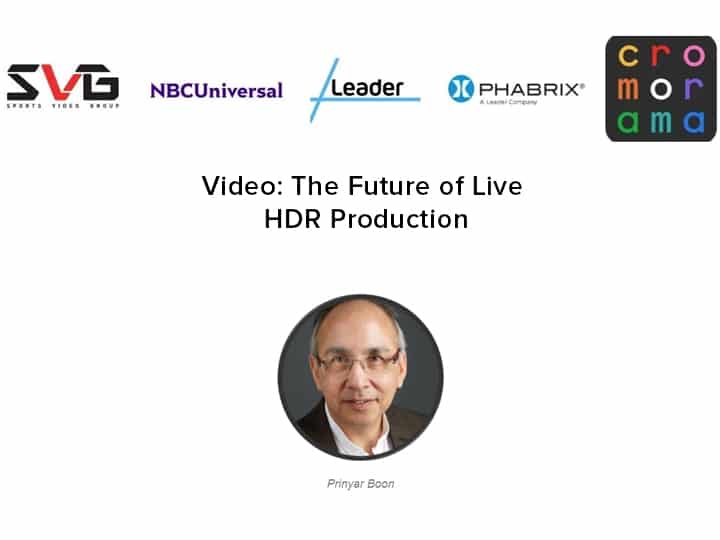In the recent online seminar, The Future of Live HDR Production, you heard the latest from industry experts about how the technology is being used. Watch the replay here
Moderated by Sports Video Group and featuring:
• Chris Seeger, Office of the CTO, Director, Advanced Content Production Technology, NBC Universal
• Ken Kerschbaumer, Editorial Director, Sports Video Group
• Kevin Salvidge, European Regional Development Manager, Leader
• Michael Drazin, Director Production Engineering and Technology, NBC Olympics
• Pablo Garcia Soriano, Colour Supervisor, Managing Director, CROMORAMA
• Prinyar Boon, Product Manager, SMPTE Fellow, PHABRIX
Summer 2020 should have been the watershed season for both HDR and UHD TV production. In Europe, the UEFA Euro football championships were scheduled to be followed by the Summer Olympics in Tokyo. Both events were going to make use of these new technologies and provide the impetus for future live sport OB coverage. Covid-19 pandemic put pay to practically all large-scale sport, forcing broadcasters and production companies to adjust their technology and focus on new remote workflows.
During the transition from SD to HD in the early 2000s, the skeptics had a field day bemoaning the new technology when images were viewed in ‘non-optimal’ circumstances. This is even more true today with UHDTV. Many people have already seen UHDTV, and to the untrained eye, they don’t see any difference. If you’re going to do UHD, you’ve got to do it well at every step of the production. Resolution alone will not deliver the ‘wow-factor’ to a production; you have to include wide color gamut (WCG), high dynamic range (HDR) and immersive audio, along with enough bandwidth into the home. Cut any of those corners and the skeptics will complain that they don’t see the point.
So, what does the future of live HDR production look like for you?
CLICK HERE TO WATCH THE REPLAY

